

Niuniu started to cry out of loud when his mother was leaving for a week-long cruise performance during the Spring Festival holidays, a traditional family gathering time for Chinese families.
The mother of the four-year-old boy Wu Fenghua, a star actor of Xiaobaihua Shaoxing Opera Troupe in Shaoxing, was busy acting for local farmers around villages at the Chinese Lunar New Year, as a traditional celebration of over 25 years since the founding of the Troupe in 1986.
Related: Top Peking Opera performer Wang Yige
As a two-time winner of the Plum Blossom Award, the highest theatrical award in China, middle-aged Wu Fenghua has no advantage in working conditions compared with her young fellows. She travels hours on bus to transfer from villages to villages, making up herself in a shabby farmhouse, waiting long time with thin but delicate costumes on backstage, and finally singing in a chilly winter night on a makeshift theater made by scaffolds and wood block and covered with plastic cloth above.
This is rather a usual routine for Ms. Wu. Since Yue Opera enjoys great popularity in south and east part of China, Wu and his young fellows has to give some 150 performances per year in rural areas hoping to share with local Chinese people this graceful art form by singing with soft, sweet tunes and melodies of gentle and refined style.
Shaoxing Opera, or Yue Opera, is a major Chinese opera form founded around 1906 in south China. It was named "Yue Opera" because it has its origin in part of Yue State in the Spring and Autumn Period dating back about 2,000 years ago.
Off work Ms. Wu obliges to offer technical instructions to younger generations of actresses not only on singing but also body training sessions. She says she has spent even more time with her students rather than her own son.
"Niuniu, I am going back as soon as possible after two shows in this village." Wu Fenghua called her son on the bus journey to Yueqing village, one day ahead of China's Lantern Festival, also the last day of the Spring Festival holidays.
 |
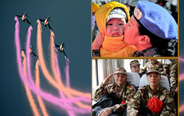 Weekly review of military photos (2012.11.19-11.23)
Weekly review of military photos (2012.11.19-11.23)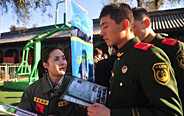 Veterans of national flag escort attend job fair
Veterans of national flag escort attend job fair Destroyer fleet in combat training
Destroyer fleet in combat training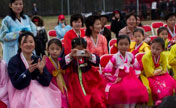 Zero distance to North Korea
Zero distance to North Korea  Rubble of Gaza International Airport
Rubble of Gaza International Airport  Sexy models shine at Guangzhou Auto Show
Sexy models shine at Guangzhou Auto Show  Landscape of China on newly issued e-passport
Landscape of China on newly issued e-passport Attractive beauties at auto exhibitions
Attractive beauties at auto exhibitions Aircraft guiding gestures inspire Chinese web craze
Aircraft guiding gestures inspire Chinese web craze Samsung's Galaxy Note 2 tops 5 mln mark
Samsung's Galaxy Note 2 tops 5 mln mark China to open Beijing-Guangzhou high-speed rail
China to open Beijing-Guangzhou high-speed rail Two grizzly bears fight for salmon lunch
Two grizzly bears fight for salmon lunch 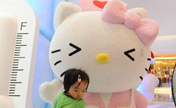 Hello Kitty's exploration in the polar regions
Hello Kitty's exploration in the polar regions 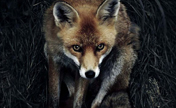 2012 National Geographic photo contest collection
2012 National Geographic photo contest collection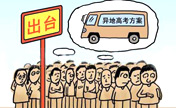 Making "Gaokao" a fairer test
Making "Gaokao" a fairer test